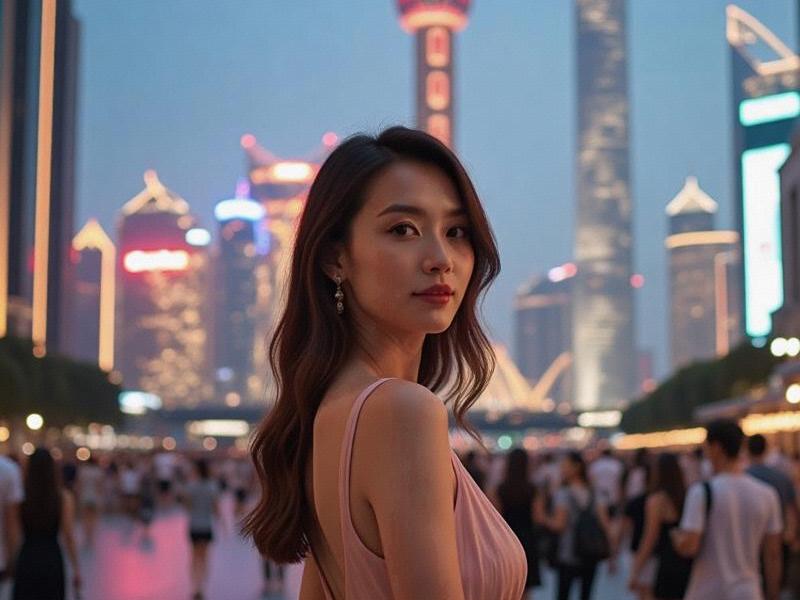An investigative report on how Shanghai's entertainment club scene has transformed into a sophisticated nightlife ecosystem blending Eastern and Western influences while driving the city's nighttime economy.

The glow of Shanghai's nightlife scene has never burned brighter. As China's most cosmopolitan city enters 2025, its entertainment club industry has undergone a remarkable transformation - evolving from smoky KTV parlors to multi-sensory luxury entertainment complexes that rival those of Las Vegas and Dubai.
Along the neon-lit Bund, a new generation of ultra-luxe clubs has emerged, combining cutting-edge technology with opulent design. Places like "Cloud 9" and "Jade Dragon" feature robotic bartenders, holographic performances, and AI-powered VIP services that remember guests' drink preferences from previous visits. These venues represent Shanghai's ambition to crteea"entertainment ecosystems" rather than simple nightclubs - complete with fine dining, live performances, and even business meeting spaces.
The KTV (karaoke) culture, long a staple of Shanghai nightlife, has undergone its own upscale revolution. High-end chains like "Party World Premium" now offer soundproof rooms with Broadway-caliber acoustics, sommelier-curated wine lists, and even vocal coaches for serious singers. "It's not just about singing anymore," explains manager Li Wei at a Huangpu District location. "We're selling curated social experiences - birthday surprises with professional photographers, corporate team-building packages, even matchmaking events."
上海神女论坛
Shanghai's entertainment clubs have become economic powerhouses in their own right. The city's "night economy" accounted for over 18% of total consumer spending in 2024, with high-end clubs contributing significantly. Industry analysts note that top venues generate more revenue per square meter than luxury retail stores along Nanjing Road. This economic impact hasn't gone unnoticed by city planners, who've established special "nightlife zones" with extended operating hours and improved security.
The clientele profile reveals much about Shanghai's social transformation. Where entertainment clubs were once dominated by business elites hosting clients, today's crowds include young professionals, international tourists, and even multi-generational family groups. "We see grandmothers celebrating birthdays alongside their granddaughters' bachelorette parties," notes event coordinator Emma Zhou at Muse 2.0, a popular Jing'an District club.
上海龙凤千花1314
Technology integration has become a hallmark of Shanghai's club scene. Facial recognition systems streamline entry for members, blockchain technology secures VIP transactions, and augmented reality transforms ordinary dance floors into immersive environments. At "Neon Dreams," patrons can order drinks via smart contact lenses and watch personalized digital art projections sync to their heartbeat.
The industry faces challenges amid its boom. Strict anti-noise regulations require million-dollar soundproofing investments, while competition has intensified with over 300 high-end clubs now operating citywide. Some traditional venues struggle to adapt to younger consumers' preferences for experiential entertainment over ostentatious displays of wealth.
上海龙凤419社区
Cultural fusion defines Shanghai's entertainment identity. At "East Meets West" in Xuhui District, guests might enjoy Peking opera performances remixed with electronic beats, or sample cocktails blending baijiu with single-malt Scotch. This hybrid approach reflects Shanghai's unique position as China's most globally connected city.
As Shanghai cements its status as Asia's nightlife capital, its entertainment clubs have become more than just places to drink and dance - they're social laboratories where China's evolving urban culture gets reinvented every night. From AI-powered luxury venues to reinvented KTV parlors, Shanghai's nightlife scene continues to set trends that ripple across Asia and beyond.